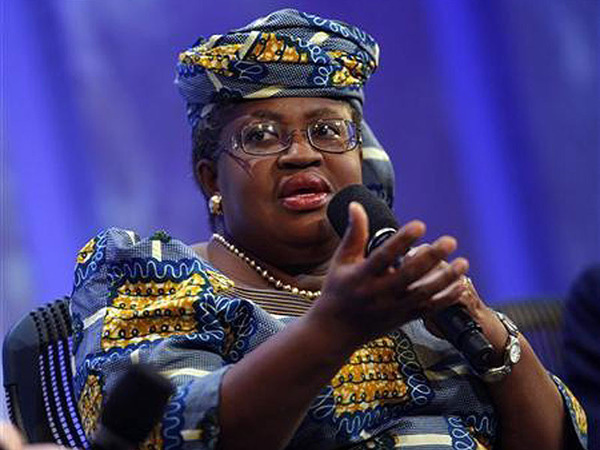Nigeria’s former minister of finance, Ngozi Okonjo-Iweala, in an interview with Le Monde, spoke about any issues including the lingering fuel crisis, her activities as a minister, the immediate past government of Goodluck Jonathan and her childhood. These are ten revelations made in the interview:
- “I have trouble seeing me as a world leader, while I appreciate that gives me this way! But when I get up in the morning, I do not think about it, I wonder how to solve the next problem. I grew up in a village in southern Nigeria where I grew up to 8 and a half years by my grandmother. My parents were scholarship students in Germany and did not have enough money to take me with them. I learned real life, fetching wood, water. At 5, I could cook.”
- “This life has given me strength and a strong character. The other experience from my childhood is the Biafran war (1967-1970). My parents lost everything. I knew what it was to have nothing more.
- “There is no perfect country. Everyone has had success in some areas. In terms of growth, the International Monetary Fund (IMF) estimated that it would be 3.4% worldwide in 2016, and 4% in sub-Saharan Africa.”
- “Some economists are very concerned for Nigeria, which could greatly suffer from the fall in oil prices. Others say the contrary, that its economy is strong enough to turn the corner.”
- “When I was finance minister the first time, the volatility of oil prices, and therefore state resources, cost at least three points of growth in the country. We then established a stabilization mechanism and opened an account for the oil surplus. Who posted up to 22 billion. In 2008, when prices fell from 148 to $ 38 a barrel, no one has heard of Nigeria because the country has been able to tap into this fund. And that, I am very proud.”
- “When I returned to the department in 2011, he remained only 4 billion on this account while the price of oil was very high! I tried again to put money aside. The President agreed, but the governors have not accepted. I suffered a lot of attacks from them and now that the country would really need this account, these same people accuse me of not having saved!”
- “If Nigeria had been more careful, he would not be here today. It hurts me. We have the mechanism, we had the experience, but we were prevented to act.”
- “Of course, Nigeria has problems, but it will work out. This is the first African economy, the consumer goods market is growing, as are the non-oil sectors. Africa accounts for only 5.8% of foreign trade of France and Nigeria 0.6%.”
- “Nigeria subsidizes fuel. About $ 6.7 billion that it costs, we found that 1.5 billion was fraudulent. One importer claimed that his boat was waging its oil while at the other end of the world, according to maritime classification society Lloyd’s Register Marine. I told Jonathan that we would stop paying. What happened? They kidnapped my mother 83 years. During the first three days, their only demand was my resignation. I was supposed to go on television and announce my resignation. This was one of the worst moments of my life. Can you imagine what happens in your head if you have to be responsible for the death of your mother? I will not go into details, but you must understand that in a country like this, if the fight against corruption, we must be prepared to pay a personal price. My father asked me not to resign. The president asked me not to resign. At the end, everyone began looking for him, and the kidnappers released.”
- “With the help of the World Bank and the British aid agency DFID, we have developed an integrated payment system and a biometric register of employees because we discovered that we were paying employees and ghost pensioners. Everything was almost ready in 2006, when I left, but when I came back in 2011, it was late! Finally, we did it. I know, this technology is less sexy than arrest, but we have to block upstream corruption. And if you master the technology you can control corruption.”




 Premier League
Premier League